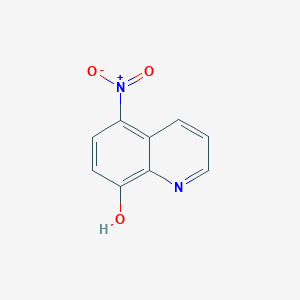-
Categories
-
Pharmaceutical Intermediates
-
Active Pharmaceutical Ingredients
-
Food Additives
- Industrial Coatings
- Agrochemicals
- Dyes and Pigments
- Surfactant
- Flavors and Fragrances
- Chemical Reagents
- Catalyst and Auxiliary
- Natural Products
- Inorganic Chemistry
-
Organic Chemistry
-
Biochemical Engineering
- Analytical Chemistry
- Cosmetic Ingredient
-
Pharmaceutical Intermediates
Promotion
ECHEMI Mall
Wholesale
Weekly Price
Exhibition
News
-
Trade Service
The development of cancer is a very complex process involving multiple genes and signaling path paths.
the most common genetic changes in many human cancers are the TP53 mutation and the activation of the PI3K/AKT path path.
TAp63 mutation can lead to inhibition of TAp63 (p53 family members), an important tumor and metastasis inhibitor, and mice lacking TAp63 develop highly metastasis tumors.
October 14th, in a new paper published in the journal Nature Communications, researchers at the Moffitt Cancer Center in the United States identified key mechanisms for activating the AKT path path through TAp63-regulated lncRNA and identified two cancer-causing lncRNAs and their common cytocyteal effect proteins.
this study provides a preclinical basis for these molecules to be used as therapeutic targets for tumors that rely on TP53 mutations and/or PI3K/AKT path roads.
source: Nature Communications TAp63 inhibits tumors and metastasis by regulating gene transcription.
researchers have previously shown that the absence of TAp63 causes highly metastatic breast cancer to the far end, and they have identified nine long-chain non-coding RNA (TAp63-regulated lncRNAs) regulated by TAp63 in the progression of breast cancer in mice and humans. TROLL), two of which had high expressions of lncRNA TROLL-2 and TROLL-3 associated with breast cancer progression and increased with the progression of breast cancer, with the highest levels observed in immersive breast cancer samples.
note that both lncRNAs are more abundant in tumors carrying the mutant p53, suggesting that TROLL-2 and TROLL-3 may be key signs of breast cancer progression in cases of the p53 mutation.
TROLL-2 and TROLL-3 are signs of breast cancer progression (Source: Nature Communications) After evaluating multiple breast tissue samples, the researchers found that levels of TAp63 decreased during breast cancer progression, while TROLL-2 and TROLL-3 levels increased, and these changes were associated with the location of the stent protein WDR26.
WDR26 is found mainly in normal breast tissue and small leaf hyperpluration tissue, while in the late stages of the disease, WDR26 is almost entirely in the cytotyte.
Position of WDR26 in breast tissue samples (source: Nature Communications) and the high expression of TROLL-2, TROLL-3, and WDR26 in a variety of malignant tumors compared to normal tissue and benign lesions, consistent with observations in breast cancer.
further studies of TROLL-2, TROLL-3, and WDR26 elevated in a variety of malignant tumors (source: Nature Communications) found that the tumor-promoting properties of TROLL-2 and TROLL-3 depended on WDR26 and the shuttle protein NOLC1.
In cancer cells that lack TAP63 activity, TROLL-2 and TROLL-3 bind to WDR26 in the nucleotomy, blocking the interaction between WDR26 and NOLC1 and causing WDR26 to travel from the nucleocle to the cytotyte.
in cytotytes, WDR26 stimulates akT signaling path path paths, leading to increased cell migration and invasion, and promoting tumor development. Dr Elsa Flores, co-author of the
TROLL-2 and TROLL-3 (Source: Nature Communications) paper, concluded: "Our findings promise to advance the development of more effective cancer progressive diagnostic tools and metastasis cancer therapies with TP53 mutations and over-active PI3K/AKT pathlines.
" References: 1 s Napoli, M., Li, X., Ackerman, H.D. et al. Pan-cancer analysis reveals TAp63-adjusted oncogenic lncRNAs that promote cancer progression through AKT activation. Nature Communications (2020) 2 s Researchers discover specific materials that promote cancer progression (Source: MedicalXpress)







